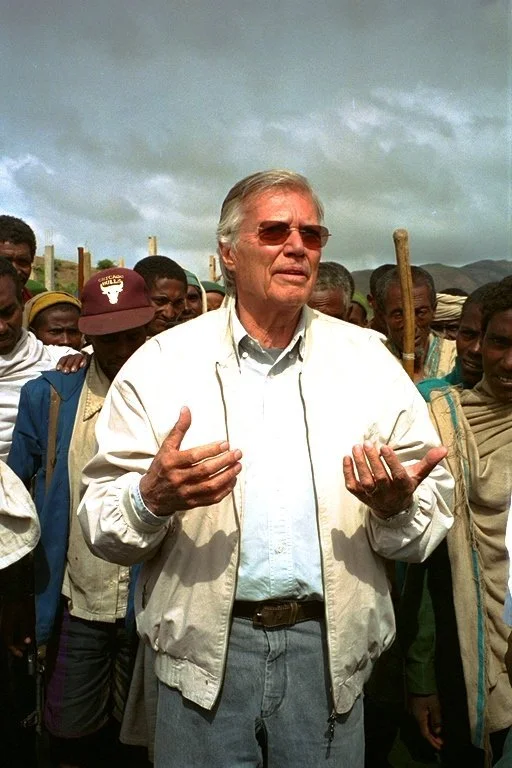Program strategy
Ethiopia's population continues to grow rapidly. The development of agriculture is not keeping pace. Many people have to leave their villages due to hardship. They are stranded in the slums of the cities with no prospects. The goal of Menschen für Menschen Switzerland is therefore to create good living conditions in cities and in the countryside: people should find a decent living in their homeland.
But the growing cities also bring economic and social opportunities. Our foundation wants to specifically promote this. We support individuals, groups and communities in finding the most efficient solutions to their most pressing problems. Sustainability is always crucial. The projects are organized in such a way that they do not create dependencies: Menschen für Menschen Switzerland empowers the population to help themselves.
Our foundation builds on close partnerships with local non-governmental organizations. They must demonstrate their competence through successfully completed social and development projects. In order to avoid planning errors, we are in constant communication with the local and regional authorities.
Our commitment always begins with an analysis of living conditions and needs at the project location. Based on this analysis, various program components are linked together so that the donated funds can be used as efficiently and sustainably as possible. For example, in the countryside we combine agricultural training with drinking water supply and in the city we combine sanitation with business support for poor sections of the population. We support the projects closely through monitoring and evaluations in order to be able to quickly correct any planning errors and adapt follow-up projects.
Menschen für Menschen Switzerland sees itself as a learning organization. New findings from science and development cooperation flow into the projects.
Our program focuses
Menschen für Menschen Switzerland works where the need is greatest and where a great benefit can be expected for the costs involved. Our project work is made up of various components that can be implemented individually or combined with each other:
Securing basic needs:
In Ethiopia, many people do not have access to even the simplest basic needs such as adequate nutrition, clean drinking water and sanitation. We create facilities and structures so that the poorest sections of the population can better meet their basic needs.
Environmental protection and adaptation to climate change:
Overuse of fields and climate change lead to low harvests. We support farmers in preserving as much agricultural land as possible or even making it fertile again.
Agriculture and market formation:
Farmers learn how to increase the yields of their fields. This means they can not only feed their families, but also sell surpluses and participate in the flourishing of a local market economy. We pay attention to the development of value chains: from farmers to processing producers to sellers and customers, structures should be created that function smoothly after we withdraw from a region.
Infrastructure and urban development:
One obstacle to Ethiopia's development is the lack of efficient cities in remote regions. We support the development of businesses and infrastructure in rural centers so that they can act as a growth engine for their surrounding areas.
Education and vocational training:
Without education there is no development. The Ethiopian government has done a lot in this area: nine out of ten children are now starting primary school. But the quality of teaching needs to be improved. We promote the education of children and young people, including with school equipment, teaching materials and teacher training, but also with food: children with an empty stomach cannot concentrate. We also offer vocational courses, especially for young women, so that they can build their own lives.
Emergency aid:
Our components are designed for sustainable effects. In cases of natural disasters such as the 2015/16 drought or the Covid Pandemic in Ethiopia, we also organize emergency aid and distribute food in particularly affected regions in order to save the health and lives of hungry people.







